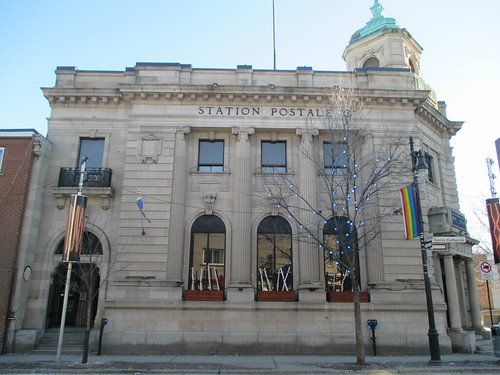
When I
walked west on Annette Street one January day back in 2014, I remembered seeing High Park-Alhambra United Church building on the southwest corner of
High Park Avenue and Annette Street as an active place of worship, home to the
High Park Korean United Church. Passing by the building one day this January, I found out that the building had been abandoned by its last congregation and
put up for sale.
It’s hard to keep track of the number of Toronto churches that have been converted into living quarters in the past decade and it looks like another adaptation is coming to The Junction very soon. The former High Park-Alhambra United Church, located at 260 High Park Avenue at Annette, is on the market for $8,950,000.
This west end intersection is home to more than a few steeples and spires. The United Church property is part of a collection of vast, century-old churches: the former Victoria-Royce Presbyterian Church at 152 Annette St., built in 1885 and converted more recently into Victoria Lofts; the former Czechoslovakian Baptist Church at 200 Annette St., constructed in 1888 and converted into the Park Lofts; and St. Cecilia Catholic Church built in 1911 and still operating as a church.
Originally built in 1908 as a Methodist Church, the High Park-Alhambra United Church closed in 1996. The Methodists played a significant role in the Junction’s alcohol ban which kept the neighbourhood dry from 1904 to 1998.
Today, the site is roughly 1.05 acres in size while the church itself contains about 30,000-square feet of space. There’s a three-storey annex attached to the main structure, home to a gym, classroom and various meeting rooms.

Since designated a
heritage building, the current plans for the site by the condo developers who bought it seem to involves the
transformation of the site into condos, keeping the architecturally and historically significant elements (the church proper) while tearing down the less noteworthy Sunday school annex.















